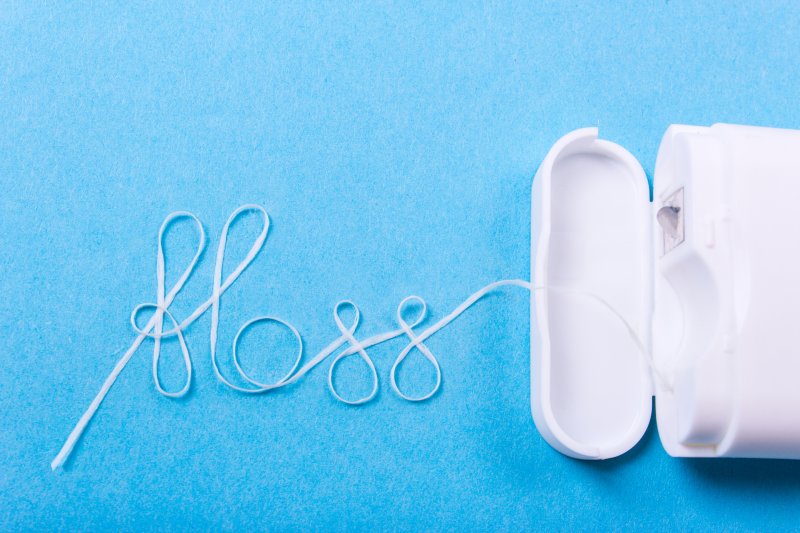
Many people view brushing as the foundation of their oral hygiene routine, and while it is certainly an essential part of keeping your mouth healthy, not everyone is aware of the crucial role flossing plays in preventing bad breath and oral infections. Since it eliminates plaque and food debris from spaces where a toothbrush cannot reach, flossing allows patients to enjoy a fresh, clean feeling as well as a beautiful smile. If you’re not on board with flossing yet, here are three reasons why you should start the habit today.
What Is the Proper Way to Floss?
Flossing cleans plaque and debris from between the teeth to prevent tooth decay and gum disease as well as the embarrassment of having food visible in your smile. To floss properly, cut about eighteen inches of it from the package and hold a small section tautly between your fingers. Then, slide the floss between two teeth and work it side to side and up and down along either edge. Gently remove the floss and move on to the next pair of teeth. Repeat this process until every space between your teeth has been cleaned.
While you should floss at least once a day, it’s even better to floss between meals. This will not only help your teeth stay clean and healthy but also prevent accumulations of food particles from giving you bad breath. Since flossing keeps your smile healthy and your exhalations pleasant, it’s also a great way to maintain a favorable image in the social scene and the professional world.
How Does Flossing Keep Gums Healthy?
The narrow spaces between teeth and immediately beneath the gumline are prime real estate for plaque-causing bacteria. If allowed to accumulate, dental plaque will eventually lead to an infection that causes inflammation of the gums called gingivitis which involves symptoms like redness and bleeding after brushing or flossing.
While gingivitis can usually be reversed with improved oral hygiene (which includes flossing), it will develop into the more serious stage of gum disease called periodontitis if left untreated. Periodontitis involves symptoms like persistent bad breath, swollen or puffy gums, and loose permanent teeth, and it leads to permanent damage such as gum recession, tooth loss, and jawbone erosion.
Flossing every day can eliminate much of the plaque that increases your risk of developing this issue. To make the habit even better, using dental floss also stimulates circulation in gum tissue, which helps fight infections.
Great habits lead to great outcomes. If you haven’t been flossing, including it in your oral hygiene regimen is an excellent way to improve your dental health and keep your smile in amazing shape for years to come.
About the Author
Dr. Wael M. Kassem earned his dental doctorate at Temple University and completed a General Practice Residency program at Kings County Hospital in NYC. He is proud to serve as a member of the American Dental Association, the Academy of General Dentistry, and the New Jersey Dental Association. His office in Williamstown offers general, restorative, cosmetic, and emergency dentistry. To learn more about the benefits of flossing, contact his office online or dial (856) 818-9998.




